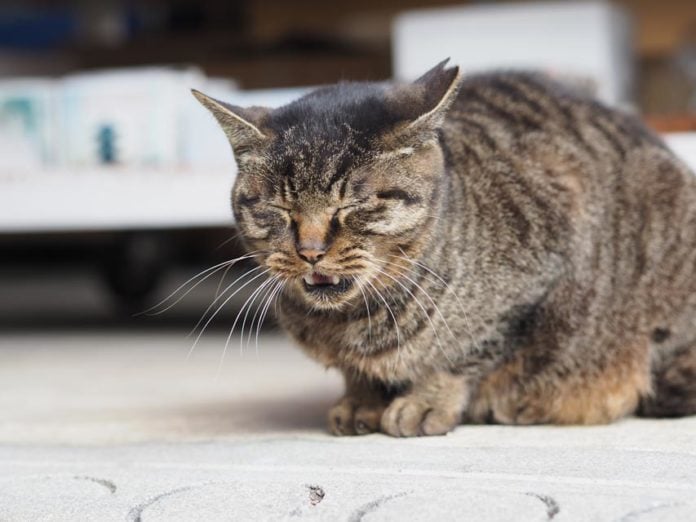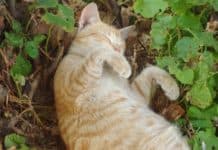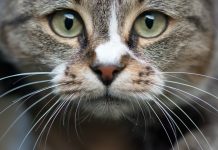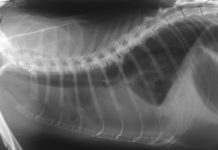Unlike with dogs, cats do not usually pant, hence, it can be disturbing to see a little cat breathless, and technically so. In most circumstances, panting in cats is a sign of a primary health concern, which needs attention. Nonetheless, there are several situations wherein this condition in cats is short lived and is harmless. There are some cats that pant during or even after exercise or to try cooling off. Fledgling, active kittens may pant for a short while they are playing. In this article, we will discuss more cat panting. Read on to learn more!
Panting in Cats: When is it normal?
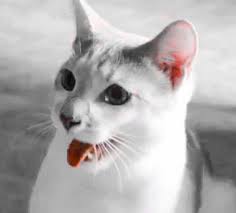
Even though you are a cat person, you perhaps have seen dogs which tend to pant after an exercise or when they are just so warm. This particular trait is not really normal for cats. If you happen to notice that your cat is panting, it is very important to assess the situation first, as well as consider paying your vet a visit if the panting seems to be abnormal for a long time.
There are times that panting in cats is normal and already a reason to be alarmed, most especially if you happen to know what kind of activity the cat was tangled in instantly previously.
Panting may be a normal response in cats, which are anxious, stressed or overheated. Or after having a strenuous exercise. It must vanish once the cat has its chance to cool down and rest. Bear in mind that cat panting under cases like these is much rarer than it is with the dogs, so unless you are sure of the cause, it is worth taking to the attention of the vet.
Indications of Atypical Cat Panting
If the cat is not too warm, stressed, or too tired from recent strenuous exercise, panting might be an indication of a primary medical condition.
Panting has actually been shown to be in association with a primary cardiovascular condition, with panting being the equivalent of the shortness of breathing in cats. Various chronic respiratory conditions like bronchial disease may cause panting in cats. Hence, when a cat is well-known to pant, it is recommendable to consult with a vet. Even in the young kittens, panting may be an indication of problems like a primary congenital heart condition.
Causes of Atypical Cat Panting
There are actually a number of health conditions, which may lead to panting in cats. These include the following:
- Respiratory infection. As you may have expected, respiratory illnesses in cats can make it hard for a cat to breath, thus leading to panting. The main cause is commonly viral, yet the development of the secondary bacterial infection might warrant antibiotics. The humidifiers and steams may help in loosening the mucus and make the nasal breathing much easier.
- Congestive heart failure. The accrued fluid in and all over the lungs may cause rapid, deep breaths, coughing, as well as panting. The treatment may include the draining the fluid from all over the lings or medication to dilate the blood vessels, eradicate the excess fluid, as well as make the heart contract with more force.
- Heartworm. Even though more usually in connection with dogs, cats may also get heartworm. This may cause some difficulties in breathing. The treatment is supportive care with some corticosteroids, in order to reduce the inflammation and oxygen therapy in more austere cases. As the heartworm disease may be fatal, it is significant to keep all the cats on a once-a-month heartworm deterrent.
- Asthma. This may cause increased respiratory rate, coughing, wheezing, and panting. asthma happens when a cat breathes in some particles, which stimulate an allergic reaction. The treatments for asthma often involves treatments known as bronchodilators or corticosteroids.
Some other conditions like abdominal enlargement, neurological disorders, trauma, anemia, and extreme pain may also cause cats to pant.
When to see a vet about cat panting?
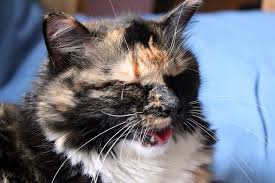
As the health conditions above indicate, panting in cats might signify a serious condition. The signs of your cat having the condition, include open mouth breathing or panting, breathing that looks labored, as well as an increase in the respiratory rate. If you happen to notice any of these signs or if your cat is panting with no strenuously exercising or being overheated or anxious, contact your vet. No matter what causes the panting in the cat, it is suggested to ask your vet for some advice. Establishing a relationship with the family vet before the problems arise is the best thing to do. Once you accomplish this, questions regarding the panting in cats and some other new behaviors may often be addressed by a phone call or an e-mail to the vet. If your veterinarian feels that there is a need for an examination, the owner must trust the opinion and the follow the necessary instructions and advice.

